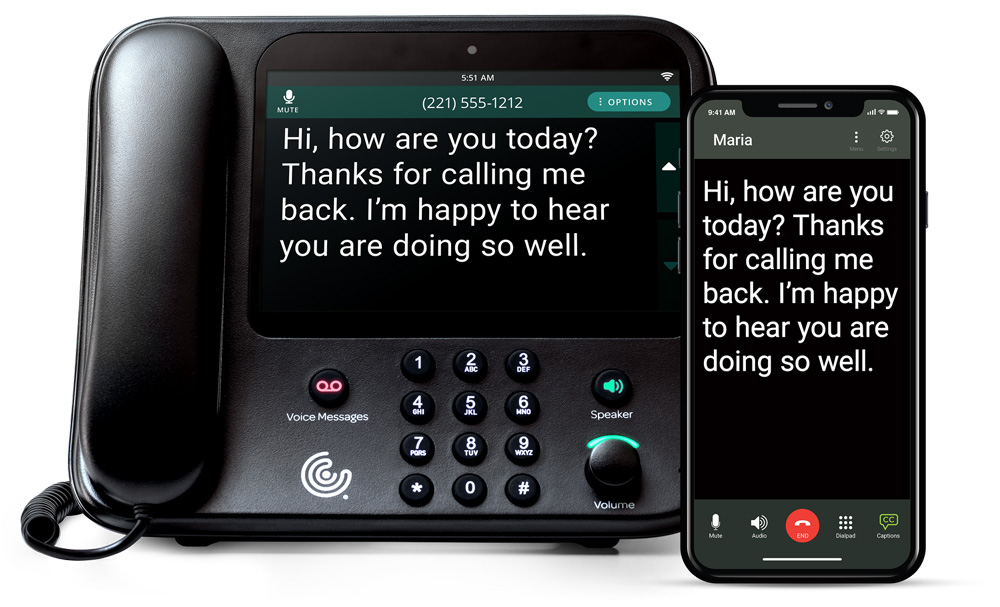Hear it. See it. Save it.
You’re parked in a campground with poor cell phone reception and you’re having difficulty hearing callers even with a hearing aid. Ever try talking on your cell phone while the air conditioner or heater is running? Or maybe your hearing isn’t up to par anymore and you can’t discern the dialect differences of callers.
Well, now you can assist yourself in understanding what the caller is saying by reading the caller’s words as they scroll across a display screen on a desk phone or cell phone. Meet CaptionCall, founded in 2011. Think of them as an “on demand” note taker recording the caller’s words, not your words, as you are talking. And guess what? The audio captioning program, desk model telephone set or mobile app and support are completely free. We can thank the Federal Communications Commission for approving a provider with equipment and software that falls under the American Disabilities Act and is paid for by a fraction tax on all phone providers nationwide. Apparently, this tax has helped thousands of hearing-impaired individuals for over thirty years with this captioning service just like it does with television captioning, an adjacent program.

You’re probably wondering about privacy. What if your doctor’s office calls? Do you want someone revoicing the caller’s words about your personal health? Or maybe you’re talking to your credit card company or hometown bank? Well, this program allows you to ‘turn on’ or ‘turn off’ this service with the push of a button. And just like your cell phone or handset, you can “mute” any call anytime during a conversation.
Like most of us, I was concerned about privacy issues, HIPPA and plain ole “it’s nobody’s business” conversation. That’s when I was reassured by Tyler Kropf, Regional Director CaptionCall who manages the western half of the United States, that you are completely in control of this scribing service. Turn it on and off at will and selectively choose whether to save a specific caller’s conversation for future reference such as a birthday or event date. Again, you control this service.
I first learned of this service when I met Jordan Woffinden, Arizona Regional Manager CaptionCall at an informal social where he was guest speaking to RV park guests about this program. It wasn’t until I heard Jordan speak at a follow up meeting that I fully grasped this ‘no brainer’ free program for any of us RVers who could benefit from this captioning service. I followed up with a conference call with both Tyler and Jordan who reaffirmed that this service is free and readily available in all fifty states. And, until voice recognition or ASR (automatic speech recognition) software advances to be able to capture the differences in speech such as gender, speed, tones, dialect, word contractions and/or poor language, the preponderance of captioning services uses revoicing to transcribe the caller’s words in your conversation. You can read more about this service and FAQs at: captioncall.com.
According to hear-it.org, over 35 million people suffer from hearing loss. Can it help you or someone you know?
Read the edited article published February 12, 2021 here: Free phone service helps hard-of-hearing – Good to know – RV Travel
Kate Doherty has been writing for more than 30 years in technical and general media. In her previous business, she and her spouse dealt with special projects within the military/government sector. Recently she published “Masquerade: A Logan Scott Novel” under the pen name Bryan Alexander, a thriller now available in eBook and paperback on Amazon. It’s a page-turner!
